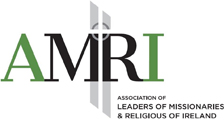Safe Motherhood – Leave No-one Behind
By Toni Pyke
Justice, Peace and Ecology Coordinator
Association of Leaders of Missionaries and Religious of Ireland AMRI
Prevention of Obstetric Fistula campaign
“…We sold our livestock to raise money for treatment in five hospitals, but I was not healed…I stopped attending Church, due to the foul smell and walking difficulties. We stopped sharing a bed and my husband started going outside the marriage because of the foul smell. I also sold my 3 hectares of land for treatment and I closed my fruit business and started tilling other people’s farms for my family.
One day, a Catholic sister informed me about Jamaa hospital, where I could be treated for free. I fundraised for the fare and travelled to the hospital and was treated for free. I got cured and went home.
I live in a grass thatched house, because I could no longer afford a better house…I used to wear pampers, but turned into using old washable rags that were used by our grandmothers. I got well, but now I am suffering as I used to milk my cows and goats. My husband regrets marrying me and complains he has been made poor by my obstetric fistula condition…
Obstetric fistula cripples women because one can bath more than 3 times a day and use lubricants but is still not hygienically clean. The urine is ever leaking, leaving a foul smell in the house…
…I urge the county governments to include women with fistula in free maternity delivery. We urge counties to construct roads, health facilities and to train and provide medics with expertise on fistula and treatment at all hospitals. I can tell all women that obstetric fistula is treatable, and one can get back to her normal duties.”
These are the spoken words of Anna John from Kitui County in Kenya who experienced an obstetric fistula in 2007. With support from the Good Shepherd Sisters in Kenya, Anna was able to access the necessary surgery to repair her fistula. She recorded her story to share in a webinar entitled: Obstetric Fistula – A Human Rights Perspective hosted by the Association of Leaders of Missionaries and Religious of Ireland (AMRI) on 17 November 2021. The focus of the webinar was to explore and reflect on the human rights realities of women and girls who are impacted by obstetric fistula.
What is obstetric fistula?
Obstetric fistula occurs after a prolonged or obstructed labour that results in an abnormal opening between a woman’s birth canal and her urinary tract and/or rectum. The physical injury results in one or both urinal and faecal incontinence and other medical complications such as infection.
In countries with high quality and affordable health-care systems, obstetric fistula has virtually been eradicated. Yet, in countries with limited or poor healthcare facilities, some 500 000+ women and girls currently live with obstetric fistula, mostly in sub-Saharan Africa and Asia. And there are an estimated 50 000-100 000 new cases annually, although the WHO reports that these statistics are difficult to estimate accurately “due to the lack of commitment in addressing and resolving this problem”.
Obstetric fistula through obstructed labour is directly linked to one of the major causes of maternal mortality. Many women who develop fistula(e) deliver stillborn babies in the process and some can become infertile. In countries where motherhood is key to a woman’s social relevance in her community, this is devastating.
Obstetric fistula is a neglected public health and human rights issue
Much of the attention in responding to obstetric fistula has concentrated on surgery to repair fistula/e, which for less complex cases can have a success rate of almost 90%. But it can be difficult for women to access or afford surgery. Given their most often rural locations and low status within their community, quality pre-natal care is limited and the prospect of medical support for an obstructed labour is minimal. In several countries up to 50% of deliveries take place in the home with no professional midwife in attendance.
The isolation of the women, along with the limitations in the capacity of trained medical surgeons to conduct fistula repair, makes the possibility of accessing repair surgery ever more difficult. Then there are the associated costs with getting to a hospital that provides fistula surgery. Most often, these are in the capital city far from rural areas.
The experience of obstetric fistula is both a cause and a consequence of the denial of women’s basic human rights. In addition to the physical injury, there are longer-lasting damaging lived experiences of injustice, trauma and denial of basic human rights. These include mobility impairment, psychosocial repercussions along with heightened economic hardship and social consequences such as stigmatisation, isolation, divorce, neglect, shame, diminished self-esteem, abuse, ostracization and abandonment by their families and communities. The realities of their poverty, their lack of access to education, to appropriate healthcare or maternal care, their experiences of malnutrition, lack of access or supports for economic independence and often who inhabit a subordinated status within their community.
Those left furthest behind
The Sustainable Development Goals (SDG) 2030 agenda is way off track if it does not incorporate obstetric fistula in its wider human rights agenda. Responding to obstetric fistula requires more than an approach that focuses on women’s reproductive health. It necessitates concerted efforts to life‐changing care and enhanced life opportunities for some of the poorest, most disadvantaged women on this planet. Preventing and managing obstetric fistula will contribute to SDG Goal 3 by improving maternal health. Any response must recognise the interconnections for example of ‘gender inequality’ (SDG5), in achieving ‘no poverty’ (SDG1), recognising ‘rights to decent work and economic growth’ (SDG 8). SDG 10 in ‘reducing inequalities’, and SDG 17 – that we can only do this through partnerships.
Greater urgency is required on the part of all governments, UN Agencies and NGOs if the aim of eliminating obstetric fistula by 2030 is to be achieved. We need to respond to the reality of obstetric fistula as an emergency, particularly as the annual increases in cases is not matched by the repair capacity of medical personnel.
Reflecting on Anna’s Story
Anna’s account of her experience of obstetric fistula is short, yet it speaks volumes. She outlines a powerful story of the key realities that women and girls face in similar situations:
- Loss of livelihood: Anna had to sell her livestock, her land and her fruit business to pay for treatment ‘in five hospitals’. Yet, none of these hospitals were able to repair her fistula. Anna was forced to seek external support and had to find work on other people’s land to earn money, despite her painful medical condition.
- An end to religious worship: Anna was exclued from attending Church services “due to the foul smell and walking difficulties”. In rural areas, going to Church is an important communal and social event.
- Ostracization and Stigma: “[B]ecause of the foul smell” Anna’s personal relationships suffered. Her husband no longer shared their bed, and he sought extramarital relations.
- Indignity: Despite regular bathing and lubrication, Anna tells how difficult it is to be “hygienically clean” since the “urine is ever leaking, leaving a foul smell in the house”. She experiences this as ‘crippling’, likening the experience to a disability. Also, a consequence of her condition and her increased poverty, Anna was no longer able to use “pampers” (sanitary pads) and had to use “old washable rags that were used by our grandmothers”. This was not only undignified for Anna, it left her vulnerable to further infection and stigmatisation.
- Limited access to medical care: The nearest hospital is “about 5km” away. For most of us in developed societies, that’s about a 15 min cycle or a 15-minute drive. For Anna this is a long walk along dusty dirt paths, in the heat. And don’t forget she is walking with an agonising fistula that is constantly leaking urine, to reach the nearest hospital, who are unable to treat her. So she must walk back without being healed. And this happens ‘several times’ at ‘several hospitals,’ which I expect were ‘several’ more miles away. And still to no avail.
- Vesicovaginal Fistula Surgery: Anna became aware of a hospital, far from her home, that could carry out a repair surgery. She could access the surgery for ‘free’ at a hospital in Kenya’s capital city, Nairobi – nearly 300kms away from her home. While the surgery may have been ‘free’, Anna still needed to get there, stay there and find her way back to her village after the surgery. All of this required money. Anna was fortunate that she was able to ‘fundriase’ for the surgery, which was successful and her fistula was repaired. She tells us that she was “cured” and “went home”. Yet, life had changed for Anna after having lived with fistula. Her livelihood has been compromised. Her standard of living has been impacted and her husband questioned their relationship.
- Hope: yet despite it all, Anna still has hope: “God will provide since I got cured.”
- That obstetric fistula is preventable. In her story Anna tells us that the condition is ‘treatable’ and advocates for improved social and medical services and infrastructure to support women at risk of obstetric fistula
According to the WHO, key to its prevention is:
- delaying the age of first pregnancy
- ending harmful traditional practices
- ensure timely access to obstetric care
Obstetric fistula is preventable
During the weeks of Advent and Christmas Day, AMRI along with the MMMs, will reflect on the reality of the lives of the women and girls around the world at risk of, or living with, obstetric fistula. Advent is an opportune moment to contemplate the experience of motherhood, as Mary awaits the birth of her child, Jesus. Similarly to the women across the world who live with obstetric fistula, Mary was also a young mother living in poverty and who did not have access to appropriate ante-natal care or medical intervention. The birth of her baby was a gift of life to humanity, so that we can all be free.
This Advent, we invite you to consider mothers around the world and to pray for the safe delivery of their child, especially those women who are at risk of obstetric fistula. That every woman, everywhere can experience a safe pregnancy and delivery. Safe motherhood is about human dignity and is a human right.


